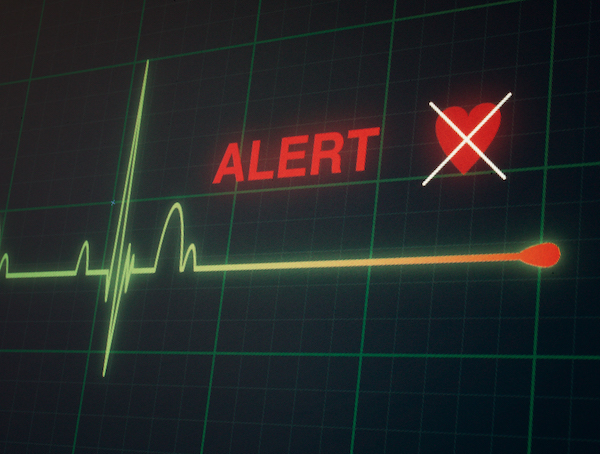5 Signs of A Heart Attack

As a caregiver, delivering daily care and maintaining a consistent routine are vital. However, as most caregivers are all too aware, sticking to your routine is not always possible. It is important to be prepared when health risks arise and knowing the signs of a heart attack will enable you to be proactive in administering care. While most people think heart attacks are sudden and severe, in actuality the signs of a heart attack are much more complex.
Here are five signs of a heart attack:
- Chest Pain: If your care receiver is experiencing pain or pressure on their chest, consider this a serious condition. The chest pain and pressure associated with a heart attack is known as angina. Oftentimes angina is milder than people expect it to be and they may wait for the pain to pass instead of seeking help. Delaying treatment usually results in permanent heart damage that could have been avoided had help been administered. If your care receiver reports severe, debilitating chest pain or if they feel an increased level of pain or pressure in the center of their chest for more than a minute or if the pain subsides after they sit down or rest, it is still crucial to seek immediate help.
- Upper Body Discomfort: While pain shooting up and down the left arm could signify a heart attack, arms are not the only place besides the chest where heart attack pain disperses. Pain in the jaw, left shoulder, back and neck are also indicators of a heart attack. The pain felt here may not be excruciating, it could feel tight or just feel like extra pressure. If you feel these added pressures in conjunction with chest pain, this too could be a symptom of a heart attack.
- Difficulty Breathing/Shortness of Breath: Any time your care receiver is experiencing shortness of breath or difficulty breathing there is cause for concern. Having trouble breathing is not only associated with the health of your lungs, it can also be a sign your heart is in danger.
- Racing Heart: When your pulse increases, it indicates that your heart is working harder than normal. An increase in pulse, without an increase in physical activity could mean your heart is having difficulty pumping blood and is working overtime to get enough blood to your other body parts. If your care receiver is participating in a physical activity and they stop, but their pulse remains high these could be important signals, especially if they smoke, have high blood pressure or high cholesterol.
- Cold Sweats/Anxiety: Anxiety may not always be a sign of a heart attack, it may mean your care receiver is simply worried about something or they may have an anxiety disorder. While anxiety is a common symptom for countless ailments, ask your caregiver the following questions if they suddenly experience a bout of anxiety: Does the anxiety seem irrational? Is this the first time they have experienced this type of anxiety? Are they dizzy, nauseous, or clamming up? Are they experiencing any other symptoms? Even if their anxiety is not induced by a heart attack, they may need medical help for an anxiety or a panic attack as these are symptoms not to be overlooked.
Experiencing any of these symptoms alone or in conjunction with one or multiple others is cause for concern and enough incentive to seek medical help by calling 911. For those who live alone, a Medical Alarm System like Lifefone is a valuable tool. The earlier you seek treatment, the more likely it is your care receiver will be able to be treated. Receiving regular heart screening is the best way to prevent permanent damage and the easiest way to discover if your care receiver is at risk.
- How Seniors Can Feel Empowered in a Digital World with Accessible Technology
- February Is American Heart Month
- Thriving as a New Caregiver: Self-Care Secrets Revealed
- Bridging the Gap: Supporting Seniors Without Nearby Family
- Distance Caregiving Simplified: Modern Strategies for Compassionate Support
FREE BROCHURE Today!
